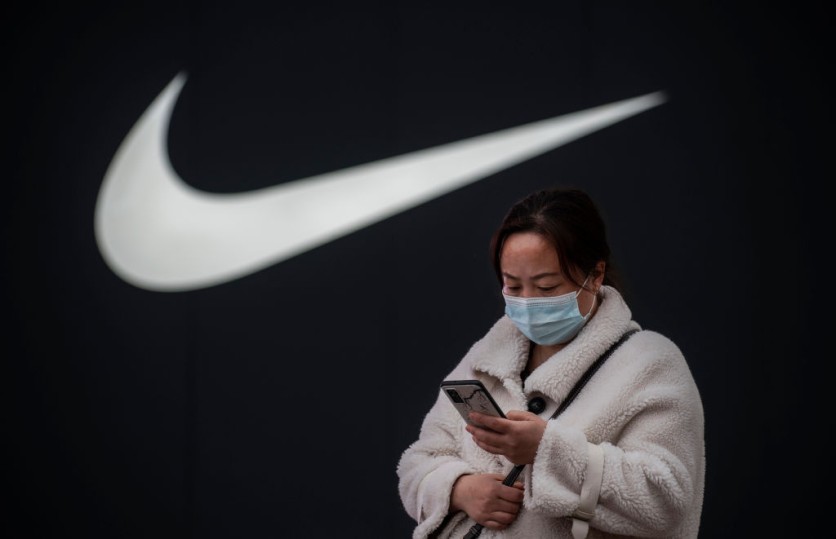In the evolving landscape of mobile applications, a recent study has shed light on the data collection practices of some of the most widely used apparel shopping apps, including industry giants like Nike and Adidas.

BEIJING, CHINA - MARCH 26: A woman looks at her phone outside a Nike store at a shopping area on March 26, 2021 in Beijing, China.
Collecting Users' Photos, Videos
The research, conducted by data protection firm Incogni, meticulously examined 180 apps across 59 countries in 2023. Notably, Interesting Engineering reported that the study uncovered that 45 of these apps are actively collecting users' photos, while 12 are capturing videos.
This raises concerns about the extent to which user-generated content is being harvested by these applications. Additionally, the study identified other noteworthy data points, such as nine apps recording users' search history and six apps collecting information related to users' sexual orientation.
In presenting these findings, Incogni aims to empower consumers with valuable insights into the privacy implications associated with popular apparel shopping apps.
By offering a clearer understanding of how these applications handle personal data, consumers are better equipped to make informed decisions about their privacy while engaging with these platforms.
This study underscores the growing importance of scrutinizing data collection practices to ensure transparency and protect user privacy in the digital realm. The study conducted by the firm reveals that the use of proprietary apps for apparel shopping, driven by incentives and convenience, comes with undisclosed costs.
Noting Big Brands
In examining 180 prominent apps, the investigation exposes sensitive data points that users may inadvertently compromise during the purchase process. Notably, 31 apps were identified as collecting precise location data, including industry giants like Nike, The North Face, Adidas, and Victoria's Secret.
The scrutiny extended to photo collection practices, with 45 apps identified as culprits, including Nike: Shoes, Apparel & Stories, H&M - We Love Fashion, Victoria's Secret, and Moncler Official Store.
Videos are not exempt, as 12 apps, such as Nykaa, a beauty shopping app; Vinted, a buy and sell clothes app; and Meesho, an online shopping app, were flagged for collecting this content.
Contacts, installed apps, and web browsing history were also under scrutiny. Additionally, SMS or MMS data were found to be acquired by six apps. The research further disclosed that credit scores were in the grasp of 3 apps.
These revelations highlight the critical need for users to be vigilant about the extensive range of personal data being amassed by popular shopping apps.
The research team delved into the motives driving the extensive data collection by the scrutinized apps, conducting a thorough examination to decipher the stated purposes for data collection and sharing. The investigation placed particular emphasis on unraveling the prevalence of advertising and marketing objectives.
Remarkably, among the apps affiliated with well-known brands, 33% of all shared data points were designated for advertising purposes. This percentage increased to 59% when considering the broader spectrum of 156 globally renowned apps, as reported by the firm.
A concerning pattern emerged when sensitive user data was shared with third parties for advertising or marketing motives. Incogni's analysis also highlighted that apps from the most popular retail brands assign an average of three distinct purposes for each collected data point.
Related Article : Levi's Partners with Lalaland.ai to Produce AI-Generated Models for Ads

ⓒ 2025 TECHTIMES.com All rights reserved. Do not reproduce without permission.




